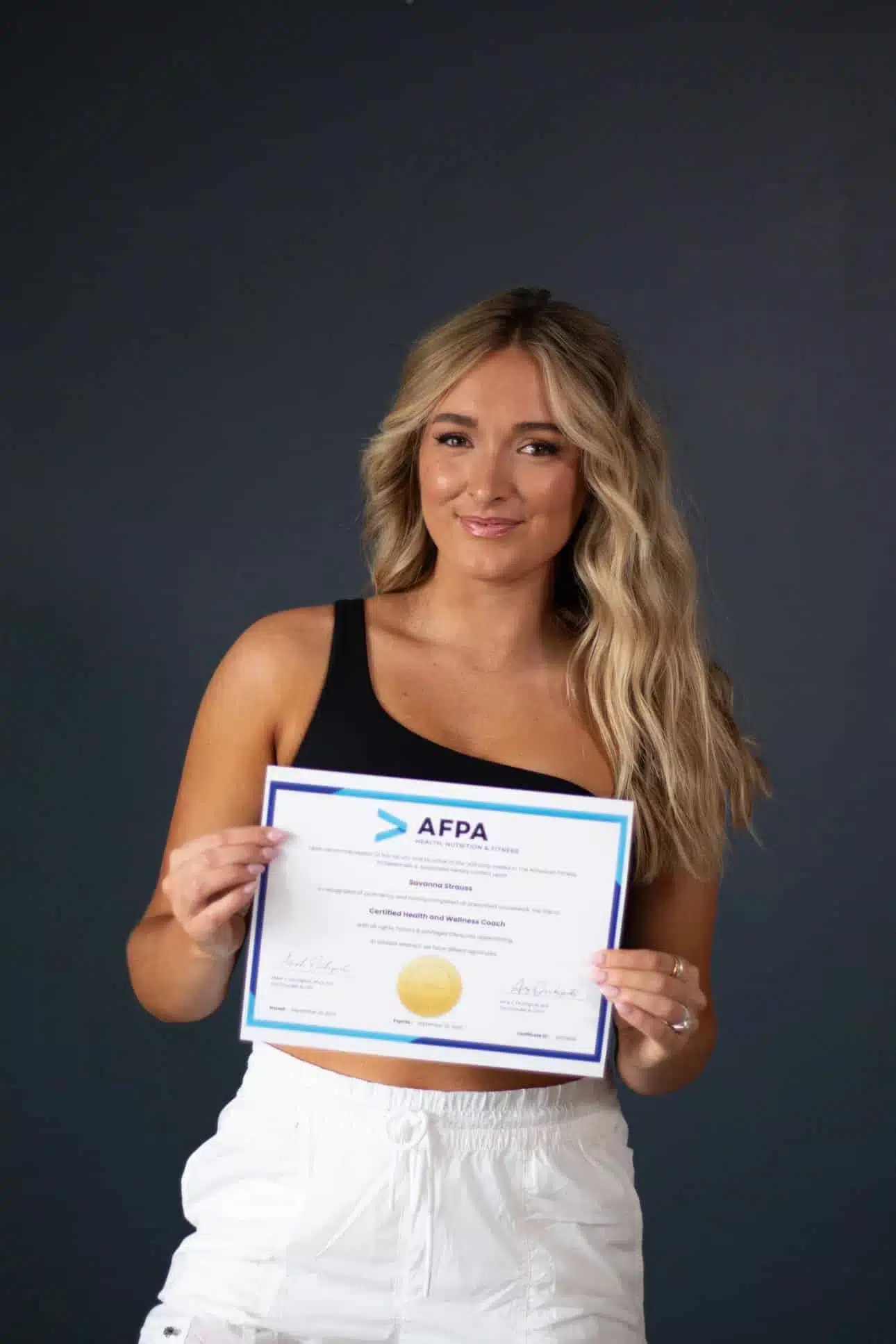The Most Complete Holistic Nutrition Certification Course on the Market
Get the most up-to-date nutrition curriculum with a whole-body approach to health, plus real-life coaching skills in one comprehensive online course.
With an AFPA Holistic Nutritionist Certification, you:
- Help people implement nutritional strategies to enrich their lives
- Gain the cognitive skills and career-building resources to become a more effective coach—all in one program
- Engage in multiple opportunities to apply new knowledge in the real world through detailed coaching exercises and practice scenarios
- Discover the most up-to-date research information and coaching strategies

This Program is For…

Currently practicing nutrition professionals and RDNs who want to holistically support their clients

Health and wellness coaches who want to grow their nutrition expertise

Personal trainers and fitness professionals who want to help more clients by expanding their skills and offerings

Individuals who want to nourish their personal health or support loved ones via nutrition education
Your Comprehensive Self-Study Holistic Nutrition Certification

Up-to-Date Curriculum
Features the latest research on nutrition, holistic health, and health behavior change

Handouts & Real-Life Tools
Download and refer to 75 helpful nutrition and lifestyle resources

Simulated Coaching Sessions
Interactive scenarios allow you to test and improve your coaching abilities

Role-Play Learning
Grow your skills by working one-on-one with practice clients

Affordable
Costs less than the market value and is payable through a payment plan with as low as 0% APR financing

Flexible
Can be completed online, from anywhere at any time
What Can I Expect From the Course?

- 100% Online Course: No textbooks or other materials required
- Self-Study: Work through the program when it’s convenient for you
- Complete in Less than 6 Months: Many students finish much faster
- Instant Access: Get immediate access to your online learning platform once you complete your purchase
- Earn Your Holistic Nutritionist Certification from AFPA
What Your Certification Course Enrollment Includes
This online certification course will provide you with all of the knowledge, core skills, confidence, and tools that you’ll need to begin your journey as a Certified Holistic Nutritionist.
- Access to the online learning platform
- 26+ hours of on-demand video instruction, plus 35+ hours of additional interactive content
- 75 handouts to use for reference and in nutrition coaching sessions
- Self-study assignments and exercises to support your learning
- Practice coaching sessions where you can sharpen your skills and nutritional knowledge
- A comprehensive guide on the most common dietary protocols
- Counseling and lifestyle management forms
- The most up-to-date research information and coaching strategies
- Simulated coaching session videos
- Graduates gain access to our private online community exclusively for alumni
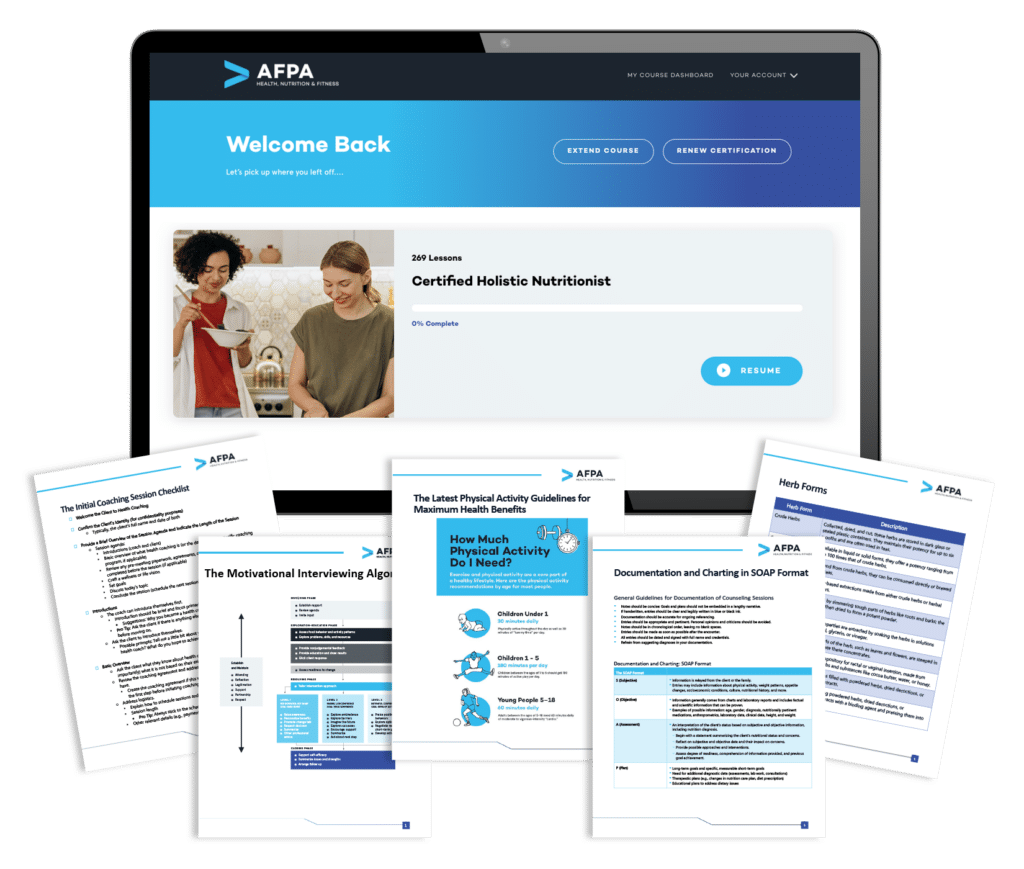
A Look Inside the Curriculum
Module 1: Introduction to Holistic Nutrition Practice Answer
Introduction to the Nutrition Industry and Its Global Landscape
Nutrition as a Profession and the Role of Integrative and Holistic Professionals
Ethics and Professional Conduct
Module 2: Introduction to Food and Nutrition Science Answer
Structural Organization of the Human Body
Overview of Nutrients
Digestion, Absorption, and Transport
Module 3: Metabolism and Nutrition Answer
Introduction to Metabolism
Metabolic States of the Body and Energy and Heat Balance
Vitamins, Minerals, Fluid, Electrolyte, and Acid-Base Balance
Module 4: Nutrition Throughout Life Answer
Nutrition in Pregnancy, Lactation, Infancy, and Childhood
Nutrition in Adolescence, Adult Years, Aging, and the Transgender Population
Module 5: Functional Foods, Botanicals, and Supplementation Answer
Bioactive Substances, Functional Foods, and Nutraceuticals
Botanicals: Herbs, Spices, and Avoiding Scams
Supplements
Module 6: Holistic Health and Wellness Answer
Health, Wellness, and Disease
The Role of Diet and Nutrition in Disease Prevention
Mental Health, Movement, Exercise, Sleep, and Rest
Community Support and Cultural Wellness
Module 7: Basis for Nutrition Assessment Answer
Introduction to Nutrition Assessment
The Community and Planning the Diet with Cultural Competence
Public Health and Nutrition
Module 8: Nutritional Support and Dietary Protocols Answer
Nutrition in Exercise, Sports Performance, and Bone Health
Nutrition in Weight Management and Eating Disorders
Introduction to the Nutrition Care Process
Module 9: The Holistic Nutrition Coaching Process Answer
What is Coaching?
Coaching Structure
Coaching Process
Capstone Project
Module 10: Advancing Your Practice Through Science and Continuing Education Answer
Nutrition as a Scientific Process
Continuing Your Education and Keeping Your Knowledge Up-to-Date
What’s Next?
Accreditation & Continuing Education
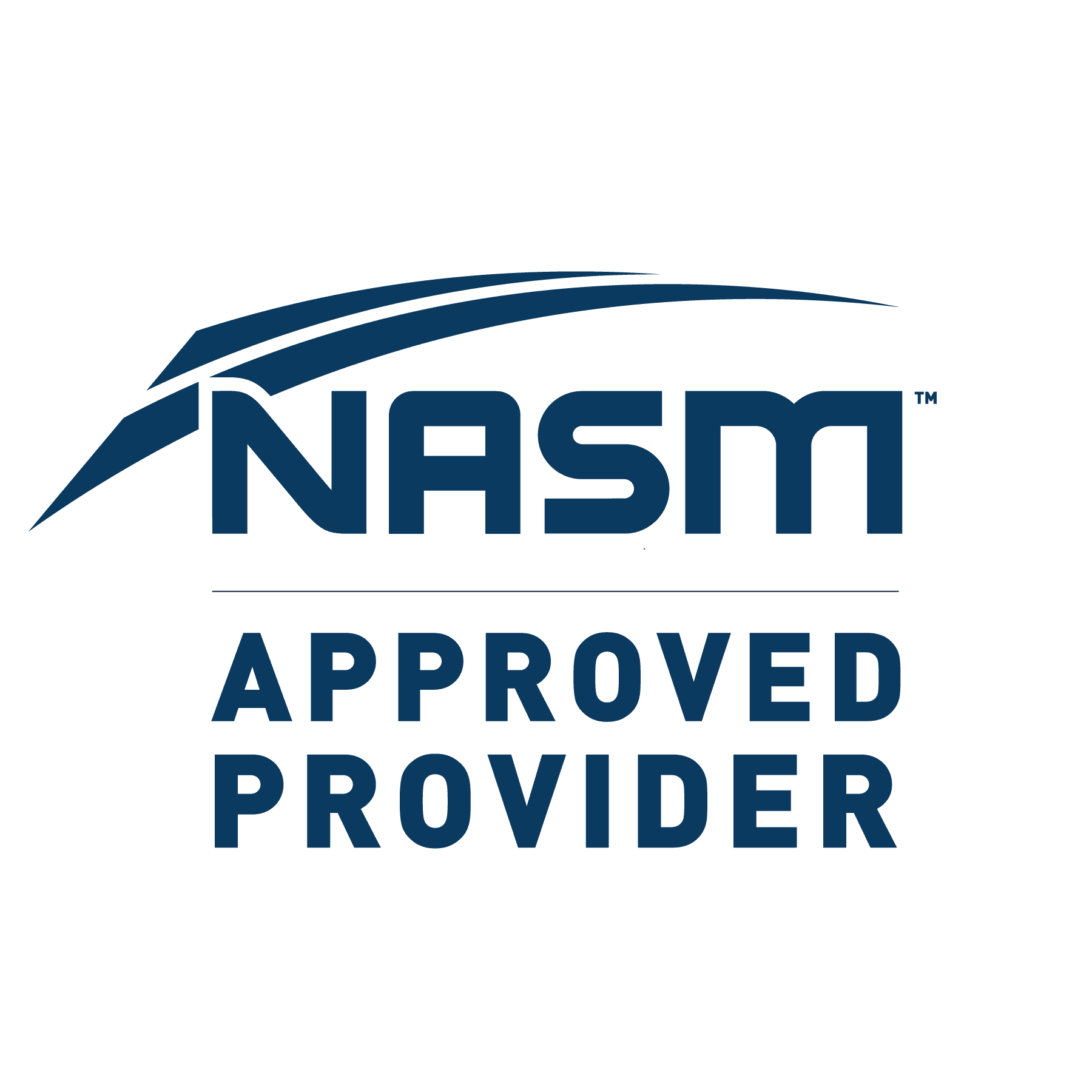
The Holistic Nutritionist Certification Program is approved by the National Academy of Sports Medicine (NASM) for a total of 1.9 NASM CEUs.
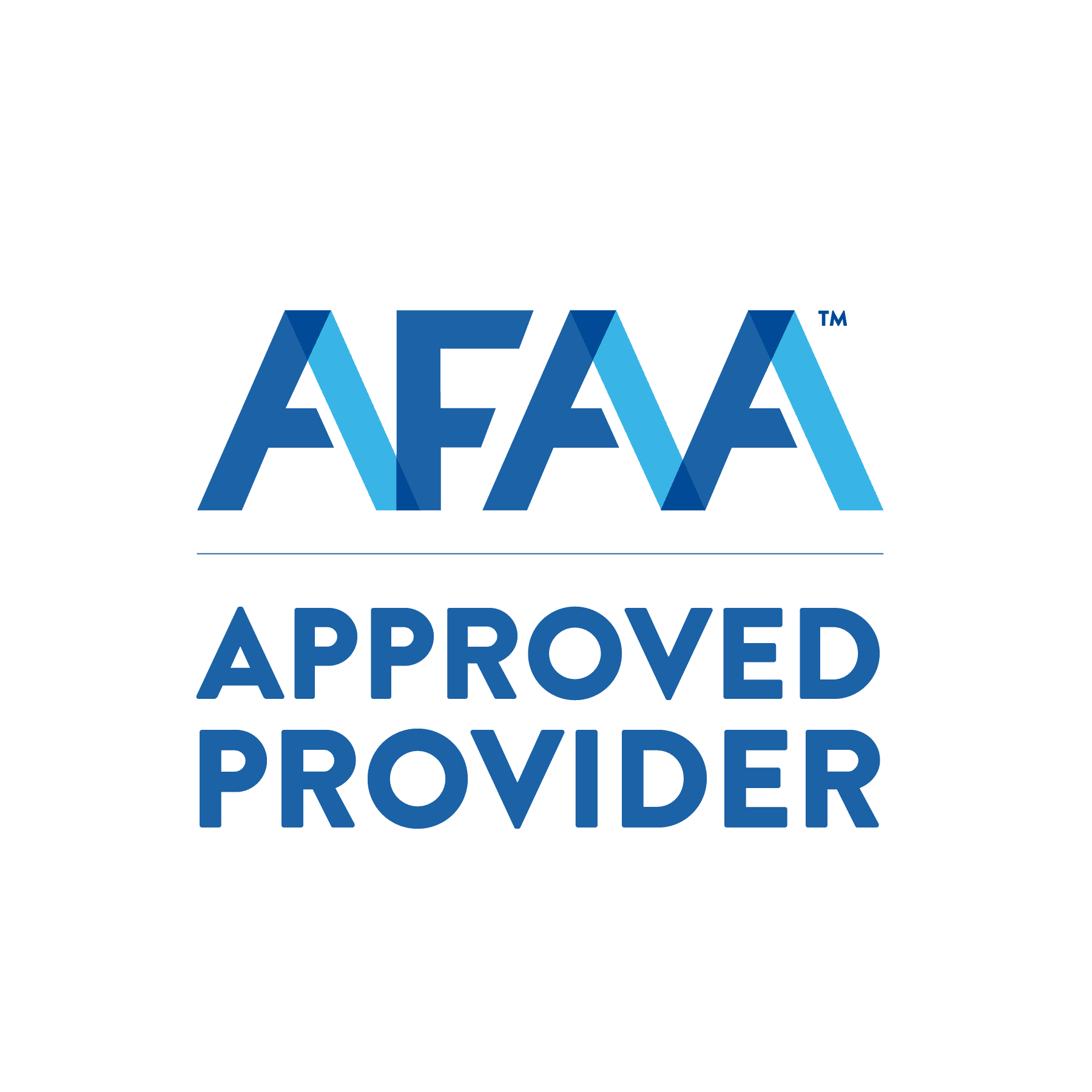
The Holistic Nutritionist Certification Program is approved by the Athletics and Fitness Association of America (AFAA) for a total of 15 AFAA CEUs.

The Holistic Nutritionist Certification Program is approved by AFPA (American Fitness Professionals & Associates) for a total of 16 AFPA CECs.
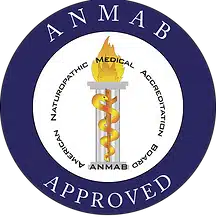
The Holistic Nutritionist Certification Program fully meets the American Naturopathic Medical Accreditation Board (ANMAB) accreditation board educational requirements. AFPA graduates are eligible to apply to become a Board Certified Holistic Health Care Practitioner through ANMAB.
- The Holistic Nutritionist Certification Program curriculums fully meet the American Association of Drugless Practitioners (AADP) board educational requirements, making any AFPA nutrition graduate eligible to become a Board Certified Nutrition Professional
- Graduates of AFPA Holistic Nutritionist Certification Program are eligible to apply for the American Natural Wellness Coach (ANWCB) or the American Association of Natural Wellness Practitioners (AANWP) board certification.
- The Holistic Nutritionist Certification Program is internationally accredited by the Federation for Holistic Therapists (FHT).
- The Holistic Nutrition Certification Program is internationally accredited as an approved training provider by the International Practitioners of Holistic Medicine.
What Our Graduates Have to Say
FAQ
How long does it take to complete the Holistic Nutritionist Certification course? Answer
At AFPA, we understand that individuals have different schedules and commitments, which is why our Holistic Nutritionist Certification course offers the flexibility and freedom to complete the program at your own pace. Whether you prefer an accelerated study or a more relaxed learning approach, we provide you with ample time to successfully complete the course.
The Holistic Nutritionist Certification course is designed as a self-directed, self-study program, allowing you to tailor your learning experience to fit your individual needs and availability. The course is structured to be completed in six months or less, providing you with a reasonable timeframe to delve into the comprehensive curriculum and absorb the core concepts of holistic nutrition.
However, we understand that some students may require additional time to fully absorb the course content or accommodate unexpected life events. Should you find yourself in need of more time, we offer the option to request a six-month extension for a fee of $75. This extension allows you to continue your studies without feeling rushed or overwhelmed, ensuring that you have the necessary time to grasp the concepts.
We encourage all students to set realistic goals and establish a study schedule that aligns with their personal circumstances. By dedicating consistent time and effort to the course, you can successfully complete it within the initial six-month timeframe or with the additional extension if needed.
How soon can I begin this course? Answer
We have open enrollment for our Holistic Nutritionist Certification course, so you may enroll whenever you are ready. Shortly after completing your purchase, we will grant you access to the learning portal where you can begin your course right away.
Are textbooks included in my enrollment fee? Answer
This course is 100% online with no textbooks required. If you’d like additional resources to strengthen your understanding of core topics, we offer students a list of optional textbooks.
What happens once I enroll in this nutrition certification course? Answer
Shortly after you place your order, you will receive access to our online learning platform. This user-friendly platform serves as your hub for accessing all course materials, lectures, resources, and assessments.
Throughout the course, you will have access to a wealth of resources to support your learning. These resources include reference handouts, counseling and lifestyle management forms, video lectures, and simulated coaching session videos. You can access these resources anytime, anywhere, making it convenient to study and review course content.
Can I earn continuing education credits for completing the Holistic Nutritionist Certification program? Answer
A newly acquired AFPA certification has a value of 16 continuing education credits (CECs) that count toward the renewal requirements of an existing AFPA certification. To qualify for CECs, you must successfully complete the certification program.
The Holistic Nutritionist Certification Program is approved by the National Academy of Sports Medicine (NASM) for a total of 1.9 NASM CEUs.
The Holistic Nutritionist Certification Program is approved by the Athletics and Fitness Association of America (AFAA) for a total of 15 AFAA CEUs.
How many AFPA CECs is this course worth? Answer
The Holistic Nutritionist Certification course not only equips you with the knowledge and skills to become an AFPA Certified Holistic Nutritionist but also provides you with 16 continuing education credits (CECs) that count toward the renewal requirements of an existing AFPA certification. To qualify for CECs, you must successfully complete the certification program.
What are the qualifications to enroll in the Holistic Nutritionist Certification program? Answer
To enroll in the Holistic Nutritionist Certification, you must:
- Be at least 18 years of age.
- Have a solid understanding of the English language.
Are payment plans available for this course? Answer
AFPA offers flexible, interest-free payment plans without credit checks or added fees.
How do I become a board certified nutritionist? Answer
Board Certification is a voluntary process that adds a national level of recognition and shows that a standard of competency as a natural health care provider has been achieved. Graduates of American Naturopathic Medical Accreditation Board Accredited Schools are eligible to apply for Board Certification with the American Naturopathic Medical Certification Board.
The American Naturopathic Medical Certification Board
The American Naturopathic Medical Certification Board (ANMCB) invites you to become Board Certified. ANMCB is a non-profit worldwide organization registered in Washington, DC, that administers certification for natural health care professionals. The mission of the American Naturopathic Medical Certification Board has been, first and foremost, protection of the health and welfare of the public.
ANMCB Certification has proven through the setting of standards over the years, to be the most beneficial tool for recognizing competencies in the Natural Health Care profession. The ANMCB successfully set levels of achievement in the natural health care profession. You will be granted a Board Certification title that reflects your education degree. Those who have attained the ANMCB certification have the personal satisfaction of knowing they have reached a recognized and accepted national level of competency. These benefits include recognition by businesses, professional associates, peers, and the public. For more information ANMCB, visit www.anmcb.org.
What is the difference between the Holistic Nutritionist Certification and the Holistic Health Coach Certification program? Answer
The Holistic Health Coach Certification program consists of the AFPA Health and Wellness Coach program and the Holistic Nutritionist certification program. Once you have completed both certification programs, you will earn the Holistic Health Coach Certification. Collectively, these programs will teach you what you need to know about basic holistic anatomy, physiology, nutrition essentials, eating, and exercising, as well as wellness and stress management, understanding and preventing disease, making healthy choices and overcoming obstacles, health coaching, client intake, best practices, and how to build your clientele.
You will learn the types of questions to ask, how to provide feedback effectively, how to facilitate action planning, learn communication strategies to motivate, guide, inform, and support clients in moving toward personal change with a holistic approach. You will also learn about developing a trusting relationship, creating goals that are aligned with coaching processes, unblocking clients’ energy, and discovering resources for change. Ultimately, you will learn the evidence-based and systematic coaching methodology that you can apply in helping your clients move efficiently toward effective, long-term health and wellness.
What is the difference between a nutritionist and a Registered Dietitian? Answer
Certified Holistic Nutritionists and Registered Dietitians are both nutrition professionals who play important roles in supporting individuals’ health and well-being. While they share a common focus on nutrition, there are notable differences in their training and approaches.
Certified Holistic Nutritionists provide clients with comprehensive information about how a holistic nutrition approach can support them in strengthening all dimensions of wellness. This approach takes into account physical, emotional, occupational, interpersonal, intellectual, spiritual, and cultural wellness. Holistic nutritionists understand the interconnectedness of these dimensions and work to promote balance and optimal health through a holistic perspective.
On the other hand, Registered Dietitians are professionals who have completed a four-year college degree with specific coursework in nutrition and have successfully passed the Registration Examination for Dietitians. They undergo rigorous academic training and practical experience in clinical settings, community health, and foodservice management.
One of the key differences between the two is the level of regulation and education requirements. The title dietitian is protected, and individuals must meet specific educational criteria, such as a four-year college degree and passing the registration examination, to legally use this title. Registered Dietitians are bound by a strict code of ethics and practice standards, ensuring that they provide evidence-based and professional nutrition guidance.
On the other hand, the term nutritionist is less regulated, and the educational requirements may vary. While some nutritionists hold advanced degrees and certifications, others may have different levels of formal education. It’s important to note that the term nutritionist alone does not guarantee a standardized level of education or expertise.
What is the difference between a health coach and a holistic nutritionist? Answer
Both health coaches and holistic nutritionists play essential roles in supporting individuals’ health and well-being, but there are notable differences in their focus and approaches.
A holistic nutritionist specializes in the field of holistic nutrition, which emphasizes the interconnection of various aspects of wellness, including physical, emotional, occupational, interpersonal, intellectual, spiritual, and cultural wellness. Holistic nutritionists primarily focus on the power of nutrition and its impact on overall health. They are trained in understanding the relationship between food, nutrients, and the human body. With their knowledge of holistic nutrition principles, they provide clients with personalized guidance and strategies to optimize their health and well-being through a balanced and wholesome diet.
On the other hand, a health coach takes a more comprehensive approach to wellness. While nutrition is an essential component of their work, health coaches often address a broader range of lifestyle factors that contribute to overall health. They consider aspects such as stress management, exercise, sleep, relationships, and personal development. Health coaches aim to empower individuals to make positive changes in various areas of their lives and support them in achieving their overall wellness goals.
While holistic nutritionists focus primarily on nutrition and its impact on health, health coaches use their coaching skills to address multiple dimensions of well-being. Ultimately, both professionals can make a positive impact on individuals’ health.
Read our full blog on the difference between a nutritionist and health coach.
What are the employment opportunities for a Certified Holistic Nutritionist? Answer
Many of our graduates create their own coaching businesses using their Certified Holistic Nutritionist credentials. This route allows them to work with clients, either 1:1 or in a group setting, on their own terms. If you value freedom and flexibility, starting a business could be the right route for you. There are also many other ways to use your certification, including:
- Becoming a corporate wellness consultant or director
- Creating nutrition content
- Teaching your children healthy habits from an early age
- Facilitating cooking classes
- Writing a cookbook
- Leading nutrition workshops
- Volunteering at a food access non-profit
- Encouraging a partner who has been recently diagnosed with a chronic illness
- Supporting your body through marathon training
- Working as an in-house nutritionist at a naturopathic clinic
This list is by no means exhaustive. There are endless unique ways for a Certified Holistic Nutritionists to use their expertise.
How much do holistic nutritionists make? Answer
For holistic nutritionists, it’s not uncommon to charge $100-$150 per session or even as much as $200-$500 per session. According to Glassdoor.com, holistic nutritionists can earn upwards of $85,000 per year doing what they love. The opportunities for health and wellness professionals are only increasing year over year.
The earning potential for holistic nutritionists can be influenced by various factors, including:
- Experience: As with any profession, experience plays a crucial role in determining earning potential. Holistic nutritionists who have established a solid reputation and gained extensive experience in the field may have the opportunity to command higher fees or salaries.
- Location: Geographic location can impact the demand and compensation for holistic nutritionists. Urban areas or regions with a higher cost of living may offer higher earning potential compared to rural areas.
- Education and Credentials: Holding advanced degrees, certifications, and credentials in holistic nutrition or related fields can enhance your earning potential.
- Employment Setting: Holistic nutritionists may work in various settings, including private practice, wellness centers, hospitals, corporate wellness programs, and more. The compensation structure can differ based on the setting. For instance, those in private practice may have more control over their rates and earning potential, while those employed by organizations may receive a salary or hourly wage.
- Clientele and Services: The type of clientele you serve and the range of services you offer can also impact your earnings. Targeting specific populations or specializing in niche areas such as sports nutrition, weight management, or therapeutic nutrition can lead to higher demand and potential for higher fees.
It’s important to note that building a successful practice or career as a holistic nutritionist may take time and effort. Networking, marketing, and establishing a strong client base can contribute to long-term financial success.
What can a holistic nutritionist help with? Answer
Holistic nutritionists are professionals who specialize in promoting health and well-being through a holistic approach to nutrition. They recognize the profound impact that nutrition has on overall health and focus on the interconnectedness of the mind, body, and spirit. While they cannot diagnose or treat specific diseases, they work in partnership with healthcare practitioners to support individuals in achieving optimal health. Here are some areas where a holistic nutritionist can provide guidance:
- Healthy Eating and Lifestyle: Holistic nutritionists can help individuals adopt healthy eating and lifestyle habits. They provide education on balanced nutrition and the importance of whole foods. They can guide clients in making informed choices about food and develop strategies for mindful eating.
- Nutrient Education: Holistic nutritionists have in-depth knowledge about the nutritional value of foods. They can educate individuals about essential nutrients, vitamins, and minerals and how they contribute to overall health. They may also provide information on the benefits of specific foods and the role they play in promoting wellness.
- Digestive Health: Holistic nutritionists can address common digestive issues such as bloating, gas, and indigestion. They may recommend dietary modifications and lifestyle practices to support optimal digestion and gut health. They can also provide guidance on identifying potential food sensitivities or intolerances.
- Energy and Vitality: Holistic nutritionists focus on enhancing energy levels and promoting overall vitality. They can help individuals identify lifestyle factors that may be impacting energy levels and offer dietary recommendations to support sustained energy throughout the day.
- General Wellness: Holistic nutritionists focus on promoting overall wellness and preventive health. They can provide general dietary recommendations to support optimal health and wellbeing.
- Collaboration with Healthcare Practitioners: Holistic nutritionists work in partnership with other healthcare professionals. They understand the importance of an integrated approach to healthcare and can collaborate with physicians, naturopaths, or other practitioners to support clients’ holistic wellness goals.
It’s important to note that holistic nutritionists do not replace the role of medical professionals. They provide guidance and education but cannot diagnose or treat specific diseases. They work alongside healthcare practitioners to complement and support the overall health and well-being of individuals.
Where do Certified Holistic Nutritionists work? Answer
Certified holistic nutritionists are qualified professionals who possess expertise in holistic nutrition and play a crucial role in promoting health and wellness. With their in-depth knowledge of holistic nutrition principles, these practitioners can find opportunities in various settings where they can apply their skills and make a positive impact on individuals’ overall health.
One common avenue for holistic nutritionists is private practice. Many certified holistic nutritionists establish their own businesses, offering personalized nutrition coaching programs and consultations. Through one-on-one sessions, they provide clients with support in dealing with health issues, such as weight management, chronic diseases, and promoting overall wellness. Holistic nutritionists also work with clients to develop a holistic approach to nutrition, considering factors like mental health, physical health, and the use of nutritional supplements.
Holistic nutritionists can also be found working in wellness centers and integrative health clinics. These centers recognize the importance of a holistic approach to health and offer services that encompass nutrition, exercise, and other wellness concepts. Holistic nutritionists collaborate with other healthcare professionals to provide comprehensive care and support to clients seeking a holistic approach to their well-being.
Additionally, holistic nutritionists may work as part of a team of health care providers in medical settings. They can be employed in integrative health practices, where they work alongside medical doctors, nurses, and other practitioners. In this collaborative environment, holistic nutritionists contribute their expertise to support patients’ overall health by incorporating holistic nutrition principles into their treatment plans.
Holistic nutritionists can also find opportunities in educational institutions, where they may teach holistic nutrition courses or work as instructors in holistic nutrition education programs. By sharing their knowledge and expertise, they contribute to the development of future holistic nutrition professionals and promote the integration of holistic nutrition into the field of nutrition and wellness.
Another area where certified holistic nutritionists may work is within the corporate sector. Many companies and organizations recognize the value of promoting health and wellness among their employees. Holistic nutritionists can be employed to provide wellness programs, conduct educational workshops, and offer guidance on creating a healthy work environment. By focusing on the well-being of employees, holistic nutritionists contribute to improving overall health, productivity, and job satisfaction.
Holistic nutritionists can also collaborate with other healthcare professionals, such as registered dietitians, in multidisciplinary healthcare teams. This collaboration allows for a comprehensive and integrative approach to patient care, addressing not only dietary needs but also the broader aspects of holistic health.
It’s important to note that certified holistic nutritionists are not limited to traditional workplace settings. Many choose to forge their own paths and pursue unique opportunities based on their interests and passions. Some holistic nutritionists may specialize in specific areas such as sports nutrition, therapeutic nutrition, or holistic nutrition for specific life cycles. They may author books, create online programs, or offer consulting services to individuals or organizations seeking expertise in holistic nutrition.
Can I get my holistic nutrition certification online? Answer
Yes. With AFPA’s holistic nutrition certification program, you can become a holistic nutritionist 100% online.
Can I speak with an Enrollment Specialist before signing up? Answer
Please email info@afpafitness.com, call 800.494.7782, or book an appointment below to speak with an Enrollment Specialist.
Flexible Payment Plans with 0% Interest — No Credit Check Required!
With AFPA’s in-house payment plans, you can pay as you go with no interest and no credit check. Spread the cost of your certification over time with the flexibility to choose a plan that works best for your budget.







